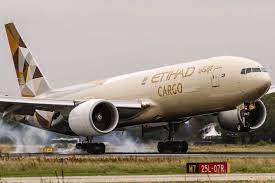Riyad December 6 2021: Saudi Aramco raised official selling prices of its January-loading crude for Asian buyers by a smaller margin than expected on concerns of potentially weakening fundamentals for the global oil markets, sources told S&P Global Platts.
Oil supplies are expected to rise because higher production by OPEC+ and the release of strategic petroleum reserves by major economies could arrive at a time when demand might potentially take a hit because of the resurgence of COVID-19 globally.
For Asia-bound crudes, Aramco raised its Medium grade by 70 cents/b to a $3.05/b premium over Oman/Dubai and its Heavy grade by 80 cents/b to a $1.80/b premium, while Super Light was raised by 30 cents/b to a $6.15/b premium and Extra Light was up by 50 cents/b to a $4.50/b premium. Arab Light was hiked by 60 cents/b to a $3.30/b premium, it said in a Dec. 5 letter.
A L S O || R E A D
Saudi Aramco raises Jan OSP crude prices to Asia, US
“Even though Saudi has taken into consideration much worse-off margins and increased less-than-window change, the prices are still a bit steep,” a trader in Singapore said, referring to the lower hike compared with the rally in the Dubai structure last month.
The Dubai cash-futures spread, understood to be a key element in OSP calculations, averaged $3.38/b in November, surging from an average of $2.29/b in October. For December so far, however, the spread has narrowed to average $2.04/b, S&P Global Platts data showed.
Contrary to previous months, the producer left market participants surprised by the moderate jump for lighter grades while the medium and heavy crude grades saw more prominent increases, sources said.
“Not normal. Lights are increased less but heavies are increased more,” a trader with a South Asian refinery said.
In November, Aramco hiked the lighter grades’ OSPs by $1.40-$2.80/b compared with $1.10-$1.30/b for its medium and heavy crudes for December-loading barrels.
Excess volumes of lighter grades could be a reason to cap the price increases and entice buyers, the same trader said.
“Being generous,” a trader with a European refinery said. “Basically, they have limited spare capacity to medium and heavy so it makes sense if they want to push out more AL [Arab Light].”
Cracking margins for heavy crudes have seen marginal improvements this month as well, lending added support to higher OSPs, sources said.
The second-month 380 CST cracks have averaged minus $7.21/b in December so far compared with minus $7.54/b for November, while 180 CST cracks have averaged minus $5.87/b this month compared with minus $6.09/b for November, Platts data showed.
Refiners may opt spot
The hike in prices by the regional kingpin is likely to make refiners shy away from term allocations and instead turn to the spot market as the sour complex continues to soften this month, traders said.
Demand from some Asian bigwigs such as China and Japan has cooled off post the winter season spike while governmental curbs on Chinese private refiners and a planned crude reserves release further adds to the weaker sentiment, sources said.
The emergence of the omicron variant and the uncertainty surrounding its impact has further left the market wondering about potential demand destruction in the weeks ahead, the second trader in Singapore said.
“In this already weaker market, the demand in future months is weaker by omicron uncertainty,” a trader with a north Asian refinery said.
Indian demand remained the sole bright spot in Asia though cheaper arbitrage barrels flowing in from the COVID-19 ravaged West and a narrow Brent-Dubai spread could be stiff competition for Middle East crudes, sources said.
“Spot is better [but] arbitrage is open and it’s better to take some volume from there,” the trader with the South Asian refinery said.
The Brent-Dubai Exchange of Futures for Swaps has averaged $2.91/b in December so far, compared with an average of $4.54/b in November, data showed.
The EFS is often tracked as an indicator of North Sea low sulfur crude value versus Middle East high sulfur crude, and a wider EFS makes crude priced against Dubai more economically attractive for Asian refiners compared with Brent-linked ones.










